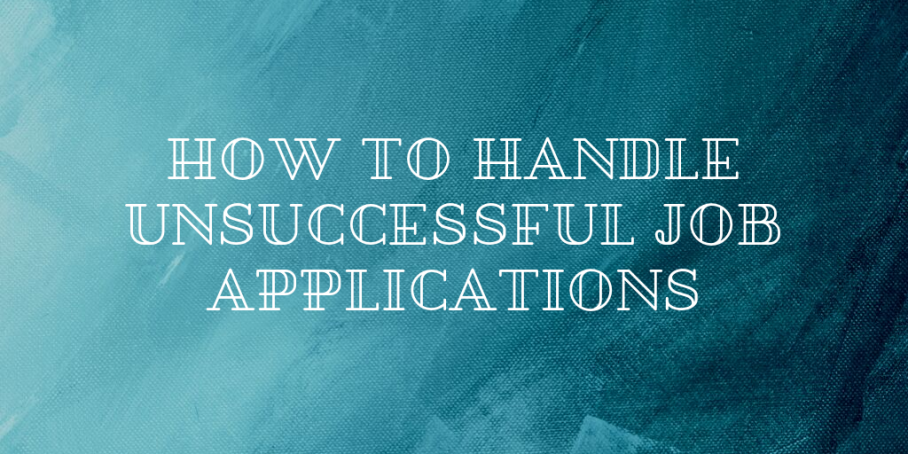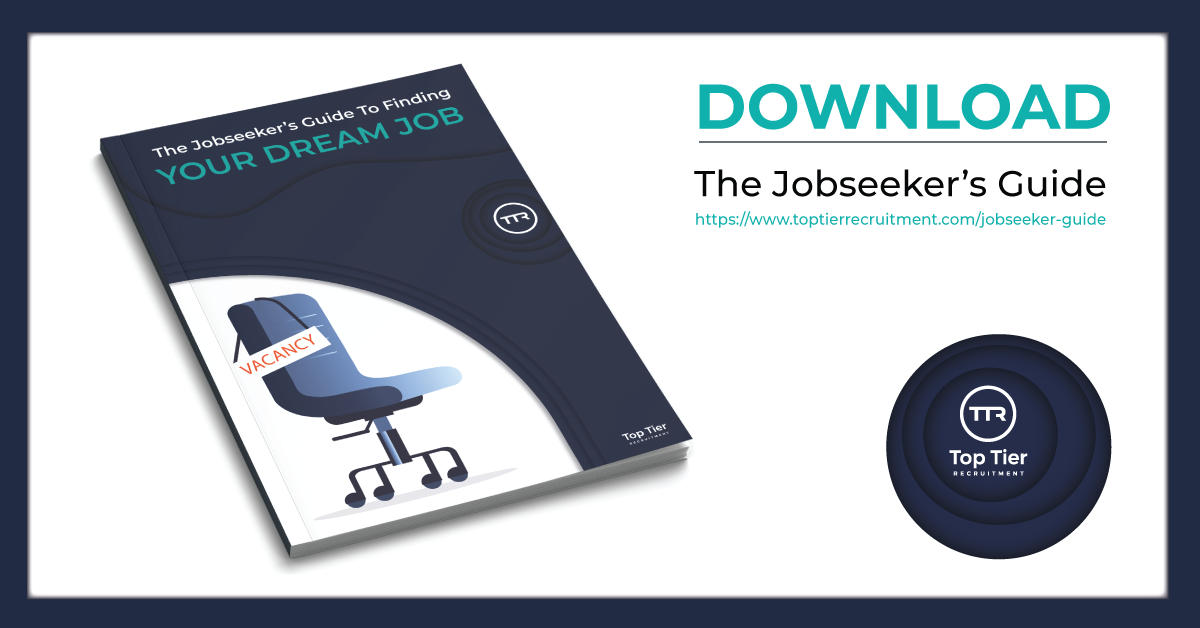How To Handle An Unsuccessful Job Application

It can be really disheartening when you're unsuccessful in your job application.
What should you do?
Read on (or listen in) as Laura and Paul help you through this difficult time . . .
But first . . .
While You're Here: Get The Jobseeker’s Guide To Finding Your Dream Job
Want some extra help to land the job of your dreams? 
The 'Jobseeker’s Guide To Finding Your Dream Job In Ireland's Financial Services & FinTech Industries' will help you put a plan in place to secure your dream job. You’ll know how to prepare well, how to ace those interviews, and how to handle the next stage.
You can download the free Jobseeker's Guide now.
Podcast Discussion
Ok, let's get into the discussion . . .
How To Handle An Unsuccessful Job Application
Imagine this situation, somebody has done their shortlist of companies that they'd like to work for. They've done up their CV, they've made an application and they don't get called for an interview - what should they do?
Paul: The reality of it is that most people who apply, assuming it's a standard enough role, won't get called for interview. I think a lot of people, particularly in today's market think that because we're at relatively low unemployment, or effectively none, no unemployment in financial services and FinTech that if they answer an application they're going to get called, but you can't be complacent about it. Good roles that you're interested in are going to interest other people as well.
Paul: So ultimately, it doesn't just come down to your perspective of your fit against the role, it's also down to your competition. It could be people internally, it could be people externally. And so I think the advice would be one, don't take it personally, it's not personal, obviously. And secondly, have a look cast the spec or the job [inaudible 00:01:26]. Critically look at your CV, see if you feel there are any gaps. And be, I suppose, honest with yourself around it, you need to recognize where there are gaps, and maybe there's an opportunity for development there or improvement there.
Paul: If you really feel that you have all the skills on paper and you should have been called for an interview, absolutely follow up. If you can identify who the hiring manager is or who the HR person is within an organization, if you're applying directly, it is no harm to follow up. And I think one of the biggest things that I see in terms of frustrations for candidates is people who sometimes feel that they should get an interview or have transferable skills. I think it's really, really important. And I'm sure we talked about this when we talked about how to prepare your CV in your LinkedIn profile, that you really highlight those transferable skills, make them really obvious as less work as possible for the person reviewing your CV is really, really important. So yeah, don't take it personally and look critically at your CV.
Laura: Absolutely. And yes, there is an abundance of jobs out there, but for the really interesting ones, it is competitive.
Paul: Yeah, always.
Laura: So suppose then somebody gets called to interview and they were unsuccessful, how do you think they should respond?
Paul: It's probably a little bit tougher after the interview because you've invested a bit of time into it and you're a little bit more probably engaged in the process. You would have done your research that again, we talked about in the episode. So it can be a little bit harder. But I think it's similar to the job application though. So it's not just about how you perform, it's how you perform in comparison to others. Sometimes it can be very, very, very fine margins that it comes down to. We'd see it across the board at junior to senior levels. It can literally be a case of an employer worked with someone who worked with someone in the past, it could be a particularly closely related company. It could be anything along those lines. It could even come down to just a system that you've used in the past that is particularly relevant.
Paul: So yeah, again, don't take personally, it can be really fine margins. It is a case of comparison against other people. It may be something completely outside of your control.
Paul: I think, look for as much feedback as you can get. I think clients that we work with, in the main, are good at giving some feedback anyway, we normally get something. It's never going to be massively detailed, but do look for feedback and again, like the CV, look at it critically, where did you fall down, what could you do next time? What the learning that you can take from not getting that particular role?
Laura: Going through a whole interview process, it's hard. It is hard. If you go through the full process and you're not successful how do people keep their morale or their motivation?
Paul: I think it comes back to when we talked about preparing for the job search and understanding what you want and having that clear goal and expectation. I think if you have that it can be tougher when you are rejected from that role that you really wanted or that company that you really wanted. But I think it's try to look at the positives, try to take the learning from being rejected after an interview or coming a close second. I think, obviously try to improve for your next interview or to plug any gaps, but be realistic again that it can come down as I said, to very, very fine margins. So don't, don't take it too critically.
Paul: The other one is if you have come close and the feedback is that it was a particular skill or a particular technology I suppose that swung it for someone else, then you've made a really good connection there. So make sure that you keep up those connections that you have, it's a chance to build your network. It's a chance to stay in touch with someone in the company that you want to work with. It's all of those things.
Paul: So just try to take the positives out of it I suppose. There is always going to be another opportunity. It may seem like the worst thing in the world, but if you do keep up all your steps that we've talked about previously in terms of building your network and having all the alerts set up in terms of jobs and all of that side, then you definitely will find another role and then it's as I said, how to take those opportunities and how do you learn from them?
Key Takeaways
Paul: There are a few different things that we've talked about already. There is the learning that you will have had from when you've been rejected or had knocks. You were talking about our industry, we learn more from when a CV is rejected than we do from when it is accepted. So there's definitely learning there. You've started to build your network and that's certainly a positive. It's a good opportunity if you do get good feedback to focus on a particular aspect of learning.
Is there a course that you could do? Is there anything online that you could look at?
Sometimes it can be a case of profile depending on the particular type of role. Is there an opportunity to maybe start a blog from it? I think practice interviews really, really important as well, we talked about that again in a previous podcast.
Paul: There are other opportunities out there for things like coaching, career coaching, interview coaching. Loads of different things that you can take away from it. It doesn't have to be the end of the world!
Need Help?
If you want any information or are interested in one of our roles in the Fintech and financial services industry, get in touch with us at Top Tier Recruitment.
Check out our podcast and, if there's ever anything that you would like discussed, feel free to get in touch, info@ttrmail.com.
If you need further help with your career and interested to learn more about career coaching, visit Possible Coaching today to arrange a introductory call!